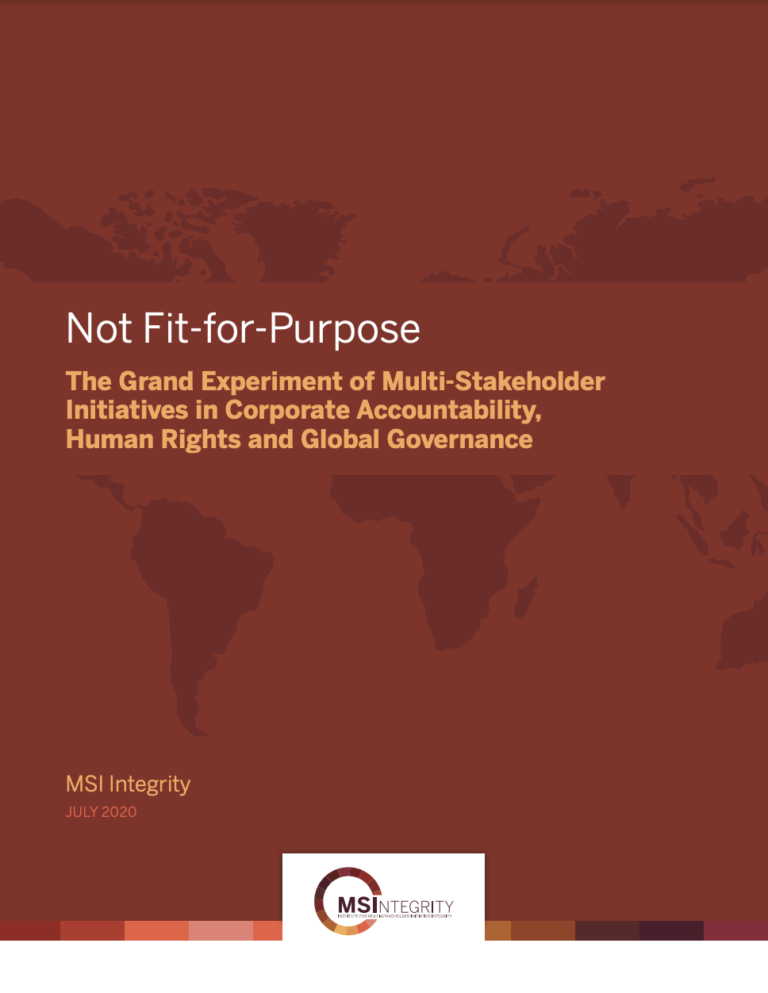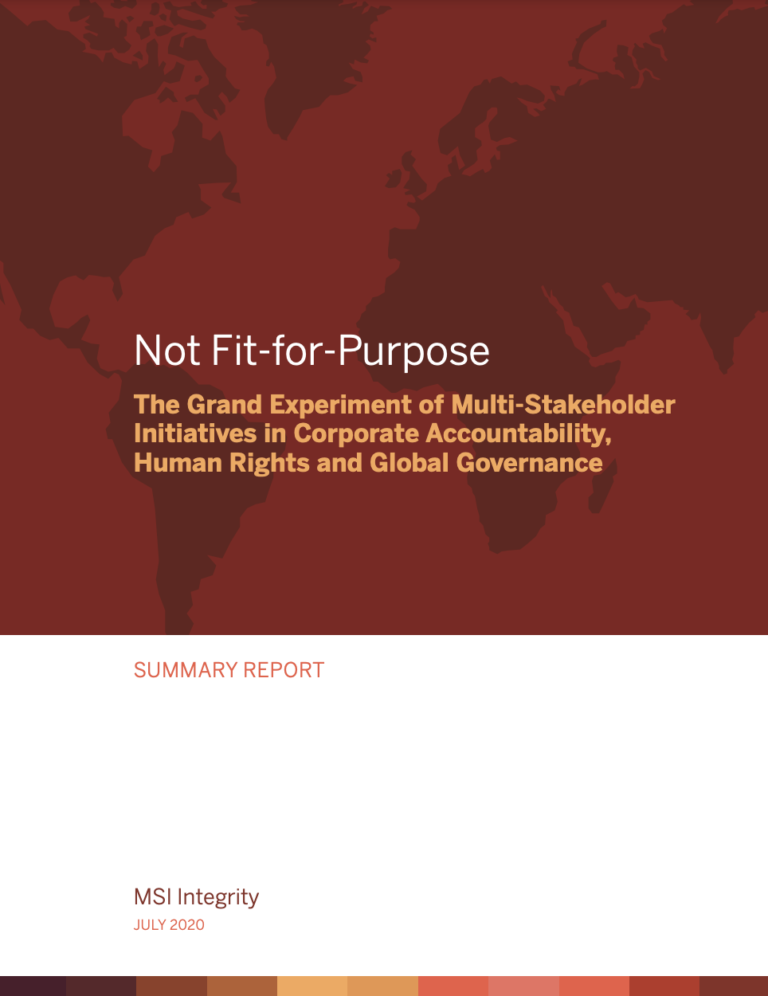When MSIs first emerged in the 1990s, they appeared to offer a transformative and exciting proposition. For years human rights and advocacy organizations had been investigating and naming-and-shaming companies for their connections to sweatshop labor, deforestation, corruption, and other abusive behavior. As this advocacy grew louder—and as government regulation of corporations remained elusive—a new experiment began. Rather than being barred from boardrooms, some large civil society organizations began working alongside businesses to draft codes of conduct, create industry oversight mechanisms, and design novel systems of multi-stakeholder governance that aimed to protect rights holders and benefit communities.
This report is a collection of the key insights into MSIs gained over the past decade. Central to the approach is the understanding of standard-setting MSIs as a field. While each MSI is unique in its history and context, the MSIs that we have examined—and that are in our MSI Database—are a set of institutions that share a common architecture: (1) governance by a multi-stakeholder body; (2) the creation of transnational standards that include or affect human rights; and (3) the establishment of mechanisms designed to offer assurances that their members are complying with their standards (e.g., monitoring, reporting, or grievance mechanisms).


